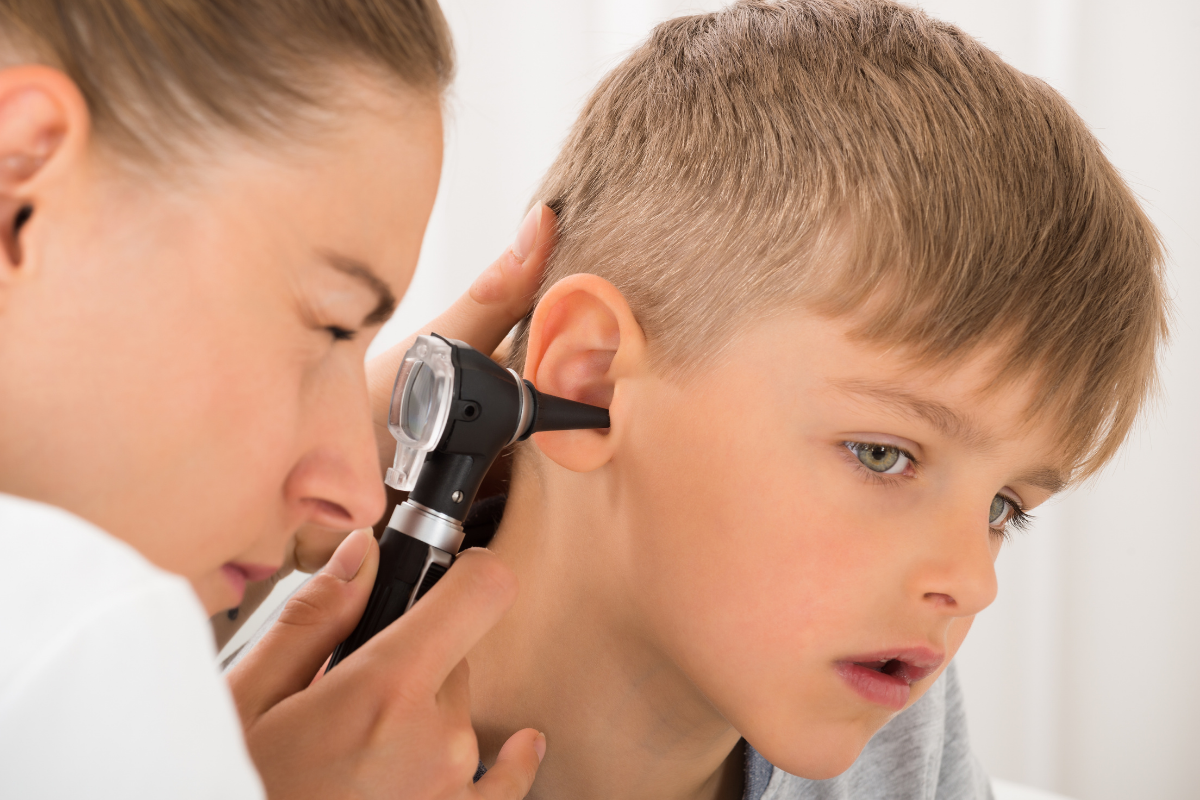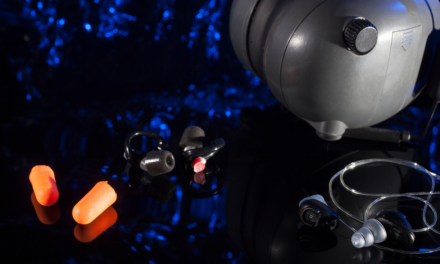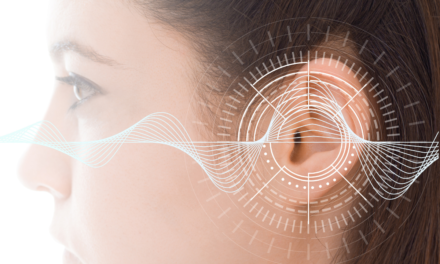How to Avoid Ear Infections for a Child
Written by Francis L’Africain,
Audiologist

An ear infection? Not again! Some children seem to get none while others collect them. Either way, ear infections should be avoided!
Do Not Mix Otitis Externa and Otitis Media
There are two types of otitis: otitis externa and otitis media.
Otitis externa, commonly known as swimmer’s ear, is an infection of the external ear canal. This type of otitis is often caused by swimming in water contaminated with bacteria. The most common symptoms are a pain in the ears, fluid flowing out of the ear, and redness. It’s important to consult your family doctor or pediatrician.
Otitis media is when there is liquid (pus) in the middle ear, so behind the eardrum. When the number of liquid increases, the pressure on the tympanic membrane rises, and the children feel pain. He can also have a fever. If the pressure rises, even more, the eardrum perforates, and the liquid drains from the ear. Middle ear infections are more frequent in children with a stuffy nose. Again, it’s important to see a doctor. He might decide to wait and see if the ear infection resolves or give antibiotics. In case of the otitis media return often, it is possible to place a tube through the eardrum to facilitate aeration of the middle ear. This intervention is called myringotomy.
Why Do Children Have Ear Infections More Often Than Adults?
The middle ear is directly linked to the nasal cavities by the Eustachian tube. Its function is to equilibrate the air pressure in the middle ear. When your child has a stuffy nose, his Eustachian tubes are not working as well as usual. The air pressure cannot be equalized, and liquid collects in the ear. The same thing happens with adults.
But children have a big disadvantage: their Eustachian tubes are a lot less sloped. It is easier for the liquid to be in the middle ear in a child’s ear. Furthermore, many children do not know how to blow their noses or do not like to do it. Therefore, they suffer from nasal congestion a lot more often than adults.
Why is it Important to Prevent Middle Ear Infections?
The problem with otitis media is that they can evolve into other ear problems. Acute otitis media are associated with severe pain and fever. But did you know that it is possible that the liquid remains behind the eardrum without exerting great pressure on it? Your child will not be in pain or have a fever, but the presence of fluid will prevent him from hearing weak sounds!
Indeed, the liquid’s presence creates a mild hearing loss. Your child could have difficulty hearing a few low sounds such as wind and whispers.
How to Prevent Middle Ear Infections?
Otitis Externa
First, if the child often makes external otitis, it is recommended to dry his ears well by wiping the visible part with a towel. Earplugs can also be worn during swimming. This avoids creating a wet environment in the ears, which is conducive to the development of bacteria.
Otitis Media
There are certain risk factors for the development of otitis media. For example, exposure to cigarette smoke, attendance at a childcare service, or drinking from a bottle (instead of breastfeeding) increases the risk of otitis media.
However, the best way to prevent otitis media is to prevent nasal congestion by having good nasal hygiene! Because your child is not able to blow his nose by himself yet, you should be helping him to maintain good nasal hygiene. There are only a few simple steps to follow. You need to get your hand on a saline solution (homemade or bought). The CHU Sainte-Justine offers a recipe and a homemade method to effectively clean your child’s nose.
With a syringe (if the child is less than 2 years old) or a bottle of pediatric nasal solution (if the child is more than 2 years old), the saline solution is injected into one nostril and then into the other. In case of respiratory tract infection (a cold for example), it is recommended to do the procedure 3-6 times/day. If the child is not congested, it is still recommended to do it 2-3 times/day during the winter and 1 time/day during the summer.
In all cases, if you are concerned about your child’s health, consult your family doctor or pediatrician. It is better to treat ear infections before they cause more problems!
Do you have any questions? Do not hesitate to contact one of the members of the ODYO team!

 1.800.909.ODYO
1.800.909.ODYO support@odyo.ca
support@odyo.ca Online
Online  Shop
Shop  Blog
Blog 








